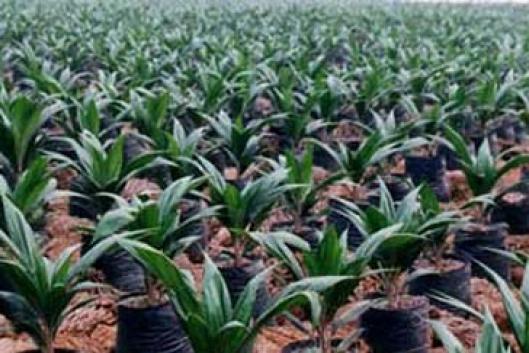In Nigeria, forest concessions - including reserves and communal farmlands - are being taken over by multinationals and plantation merchants with the aid of some Government officials for monoculture tree plantation to feed international markets enriching private pockets. Rubber, oil palm, cocoa and more recently, gmelina, banana and cassava plantations are the predominant plantations in Nigeria. All of these are geared towards feeding international markets for humans and machines in Europe, America and a legion of countries in the global South. Generally those tree plantations are established without due process including free, prior and informed consent or consideration of community women, men and children who depend on forests for their survival.
The destruction of the forest results in eviction of communities from their ancestral land, cultural alteration, as well as spiritual contamination. And for women, who have such roles as farmers, fisher-folks, traditional healers and housekeepers, traders, fetchers of water, fuel wood collectors and local midwives, it has a major impact.
Some women have died, many are dying and some have been rendered widows as a result of the impact of monoculture tree plantation expansion in their localities. Others have to migrate to long distances when they lose their source of livelihood, in search of menial jobs to fend for themselves and those who fall under their care.
Okomu Oil Palm
Okomu Oil Palm PLC, a major plantation merchant in Nigeria has been involved with expansion of its plantation since 2000, where 8000 hectares of forest reserve (without a Certificate of Occupancy) for rubber and palm oil plantation was added to the already existing 15,578 hectares.
This activity had led to the eviction and extinction of the communities of Oweike, Agbede and Ijawcamp. The fourth community called Makilolo, is still resisting through the intervention of ERA/FoEN's Community Forest Watch initiative.
Due to the militarization of the community territories by Okomu Oil Palm, people have become tenants in their own land as they are subjected to rigorous security checks before they enter and exit their own communities (see WRM Bulletin 199). Forest community women and people of Makilolo, Agbede, Oweike and Ijawcamp have suffered serious cases of dislocation and livelihood truncation while young women are exposed to different forms of harassment from security operatives.
The company has electricity in all its facilities but communities lack electricity as well as proper sanitary facilities. Pollution of their streams (their only source of water) by the chemicals used in tree plantations has given rise to some health concerns in the area like miscarriages, still births, skin infections, birth defects, bronchitis and a host of others. As caregivers to their families and all those who fall under their care, women are subjected to increased hardship and suffering with more cases of diseases and sicknesses prevalence.
In spite of these impacts on communities, Okomu Oil palm plans to expand its oil palm cultivation by another 20,000 hectares this year under its structured investment of $75 billion dollars.
Michelin rubber plantations
Local women from communities neighbouring the fast depleting Iguobazuwa forest reserve in Ovia South West Local Government Area of Edo State, Nigeria, depended heavily on their forest for their medicinal, nutritional and family income needs. But their forests and communal farmlands were suddenly converted by the French Rubber Company, Michelin PLC into rubber plantations to export latex to make car tyres.
Michelin PLC, a French multinational rubber company headquartered in France, had in the past operated in Nigeria as Utagbauno Rubber Estate Limited (Delta State); Waterside Rubber Estate Limited (Ogun State); Araromi Rubber Estate Limited (Ondo State); and Osse River Rubber Estate Limited (Edo State). It now operates as International Rubber Plantation Society (SIPH) and Rubber Estates Nigeria Limited (RENL). This strategy is to distract and deceive people from their parent brand.
The overall impact of RENL's operations in the area has affected community women and people of Aifesoba, Igueihase, Ora, Iguoriakhi, Iguobazuwa Amienghomwan, Obozogbe villages, where over 3,500 hectares of forested landmass and communal farmlands were given to the company without due process, without free prior informed consent of host communities, and let alone conducting a proper Environmental Impact Assessment.
Other major plantation drivers in Nigeria include: Wilmar International (Biase Plantations Limited) in Cross River State and Southgate Cocoa Company Limited in Cross River State where over 7000 hectares of Etara and Ekuri-Eyeyeng community forest is earmarked for cocoa plantation.
Only forest management practices controlled by communities and based on their knowledge and experience will give Gains to Mother earth, not Pains to Mothers on earth.
Rita Ikponmwosa Uwaka, Forest & Biodiversity, ERA/FoE Nigeria, e-mail:rhyta1@yahoo.com
